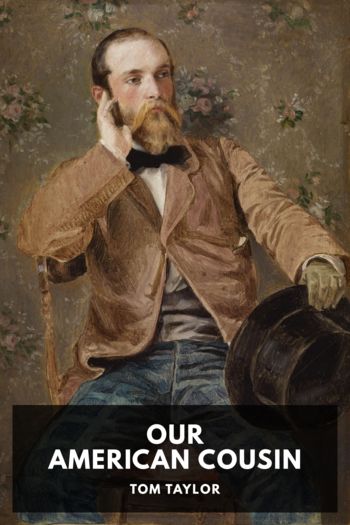Daughters of the Summer Storm by Frances Statham (best sci fi novels of all time .TXT) 📗

- Author: Frances Statham
Book online «Daughters of the Summer Storm by Frances Statham (best sci fi novels of all time .TXT) 📗». Author Frances Statham
Dona Isobel reached for Maranta's hand. The curious stared for a moment at the disabled vehicle and at the two women and then drifted on. Suddenly, another wave of humanity descended, jostling and jolting, surging through the streets and engulfing the walkway where the two women stood.
Someone threw flour in Maranta's face, temporarily blinding her. She reached up to wipe her eyes, and at the same time was shoved, torn from Dona Isobel's grasp and caught up in the wild, snakelike movement of the unruly mob.
"Maranta," the woman called out, but when Maranta could finally see, Dona Isobel had vanished. Maranta's elegant new gown was now covered with flour, and she was as anonymous as the others in the crowd.
A tall man beside her grinned and grabbed at her hand. Maranta drew back, suddenly afraid. On and on she was swept away by the crowd, and the distance from the disabled carriage grew greater and greater.
Another man, whom she had seen near the carriage, appeared at her other side, and a sense of something terribly wrong assailed her. It was almost as if her separation from Dona Isobel had been planned.
The stampede was relentless. Maranta twisted and turned in an effort to escape, but the two men at her side blocked the way. As they neared an intersection, a hand clamped over her mouth, shutting off her protest. She was dragged from the crowd to the dark, narrow street at her right. Her muffled cry for help was obliterated by the noise of the revel-makers, and the crowd moved on without her, leaving her in the hands of her abductors.
Despite her struggles to free herself, Maranta was lifted into a waiting carriage in the darkened, narrow street and covered by a heavy shroud that effectively curtailed her cries for help.
Why was she being taken away? Was it for herself? Or was it because of Ruis—because the villains thought to ransom her?
The carriage sped through the night—downhill, it seemed. Soon the noise of the paved streets gave way to the hollow sound of the viaduct, and then to the dull thud of earth beneath the wheels. Away from the praça, the Avenida Paulista, and the city of São Paulo, the carriage traveled, taking Maranta to a rendezvous of life-threatening violence.
Dona Isobel wept and twisted the handkerchief in her hands. "It was my fault. I should have held on to her more carefully."
Pará soothed the hysterical woman and gave her the glass of warm milk laced with brandy. "Dom Ruis will find her, senhora. Wait and see."
"But it might be too late," Dona Isobel cried. "O merciful Mother of Heaven, who could have done this? Who has Ruis offended enough to demand this heartbreak for us all? That sweet child has no enemies of her own, now that Innocencia. . ." Isobel's hand crept up to her mouth, and her face turned a sickly shade. "Innocencia's brothers," she whispered to herself and fell into a swoon at Pará's feet.
37
In the garden adjacent to the chapel of the deserted house, the two abductors handed over Maranta to a man whose face was covered by a monk's cowl.
"We will have our money now and be on our way," one of the kidnappers said, glancing uneasily about him.
"How do I know you two idiots haven't abducted the wrong girl? It's impossible to identify her with that mess on her face," the voice growled from behind the priestly garb. "Wait here—until I make sure she is the one we seek."
With a cruel grasp, the man pulled Maranta with him inside the chapel. Holding onto her long, black hair that had become loosened in her struggles, he shoved her face downward into the font of brackish water that had once been holy.
Maranta sputtered as her head came up. She heard the rip of her petticoats and she cried out at the harsh treatment.
"Be quiet," he ordered. And Maranta, trembling, did as she was told. He took the remnant of the petticoat and wiped her face free of the flour mixture.
In the dim light, the man scrutinized her features. "What is your name, senhora?" he demanded.
Her weak voice responded, "M-Maranta. Maranta Tabor."
He laughed at her answer. "Come now, you must have another name, as well. What is it?" he demanded, pulling her hair tighter.
She winced. "Monteiro. I am the wife of. . . Vasco da Monteiro."
Satisfied, he eased his hold on her hair and led her down the steps behind the altar. She screamed as he shoved her inside the cold, dank room. The sound of the key in the rusty lock terrified her. Maranta pushed at the door, but it was no use. She was locked inside a family burial vault with only the bones of untold generations to keep her company.
The two brothers sat at the dining table, leisurely enjoying their late meal and congratulating themselves on their success. Outside the official residence of the magistrate, a ruckus developed, and the brothers frowned at the noise that disturbed the quietness of their evening.
Suddenly confronting them stood Ruis da Monteiro, his dark, aquiline face showing its dangerous mood.
"Brother-in-law," Honório greeted him. "What a surprise to see you. Sit down and have some wine with us."
The man stood up and gestured to an empty chair. "I was just mentioning to Vincente here that I heard you were in São Paulo. We wondered if you would come to see us."
Ruis remained standing, with a hand on the pistol showing from underneath his coat. "Where is she, Honório?" he demanded.
"I have no idea what you're talking about, Ruis," he answered in a mildly censuring tone.
Honório turned to his brother Vincente. "Something seems to be disturbing our brother-in-law. Do you have any idea, Vincente, as to what it might be?"
The amused dark eyes of Vincente, the smaller of the brothers, sparkled. "None whatever, Honório."
"I am not





Comments (0)